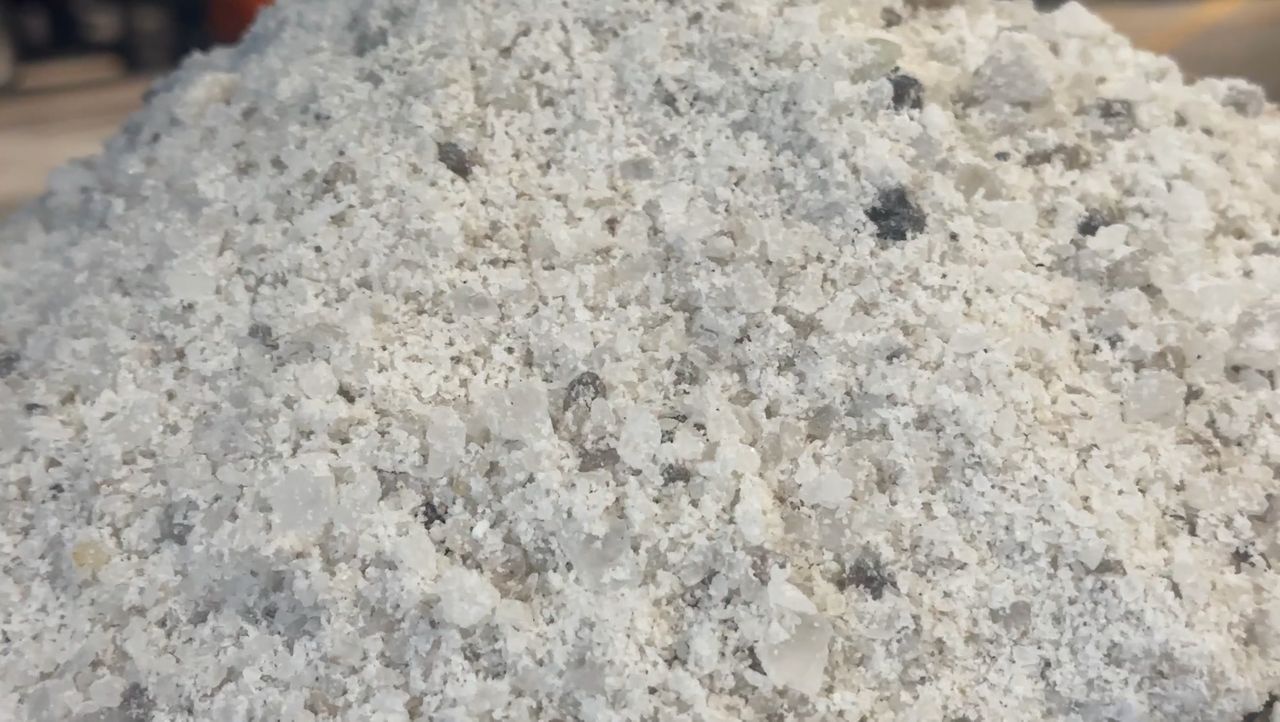OAK CREEK, Wis. — Winter Salt Awareness Week starts Jan. 27 to highlight that if salt is used to keep roadways from freezing during the winter, it can harm the environment.
The goal is to limit salt usage. One of the communities taking this approach is Oak Creek in Milwaukee County.
Tyler Buerger is the assistant director of Public Works. He said their department has a machine that turns the salt into brine, a mixture of salt and water used to prevent snow and ice from freezing on the roads.
Buerger said once a certain amount of salt is dissolved into the water, the rest is pushed out, but that excess salt can be put to good use.
“We put it in our plow trucks,” said Buerger. “It’s already wet so it is activated. It hits the road, and it’s activated almost instantly.”
The Department of Public Works also does salt calibration.
Buerger said this allows them to pour out only what’s needed to keep the roads safe.
“I can tell you 100% this truck is putting out 250 pounds of salt when I’m asking him to put 250 pounds out,” said Buerger.
The city started looking for ways to reduce their salt usage in 2015 after it learned how winter salt eventually ends up in waterways and harms the environment.
Buerger said their strategies have had a real impact on reducing salt usage in recent years.
“We saw a 50% decrease in how much salt we use in 2022,” said Buerger. “We were about 3,400 [tons]. Last year, we were about 1,500, 1,600 tons total.”

The Department of Natural Resources (DNR) is currently testing public water wells across Wisconsin to gauge how much salt is ending up in the state’s waterways.
“Particularly, how many wells at least once exceeded the health advisory level of 20 milligrams per liter, which is a health advisory level for people that have a low sodium or no salt type of diet,” said Carla Romano, DNR groundwater section manager.
DNR data shows more than a third of the 1,700 wells recorded higher levels of sodium at least once within the last 10 years.
DNR Stormwater Section Manager Shannon Haydin said this highlights that there is still work to be done to limit salt usage across the state.
“Salt is very effective,” said Haydin. “It does a really good job of keeping us safe and nobody is suggesting that we don’t use any salt. I think being mindful of how much salt you are using. The right amount at the right time is really what is most important to eliminate how much of that is out there getting into our water systems, into drinking water and our surface water.”
For Buerger, Oak Creek’s reason for taking the approach it did was simple.
“Being so close to Lake Michigan, obviously all of our storm runoff goes straight there,” said Buerger. “We are very community involved with what we do.”
As part of Winter Salt Awareness Week, there will be several live streams to teach the public the impact that winter salt has on the environment.
For more information, click here.












